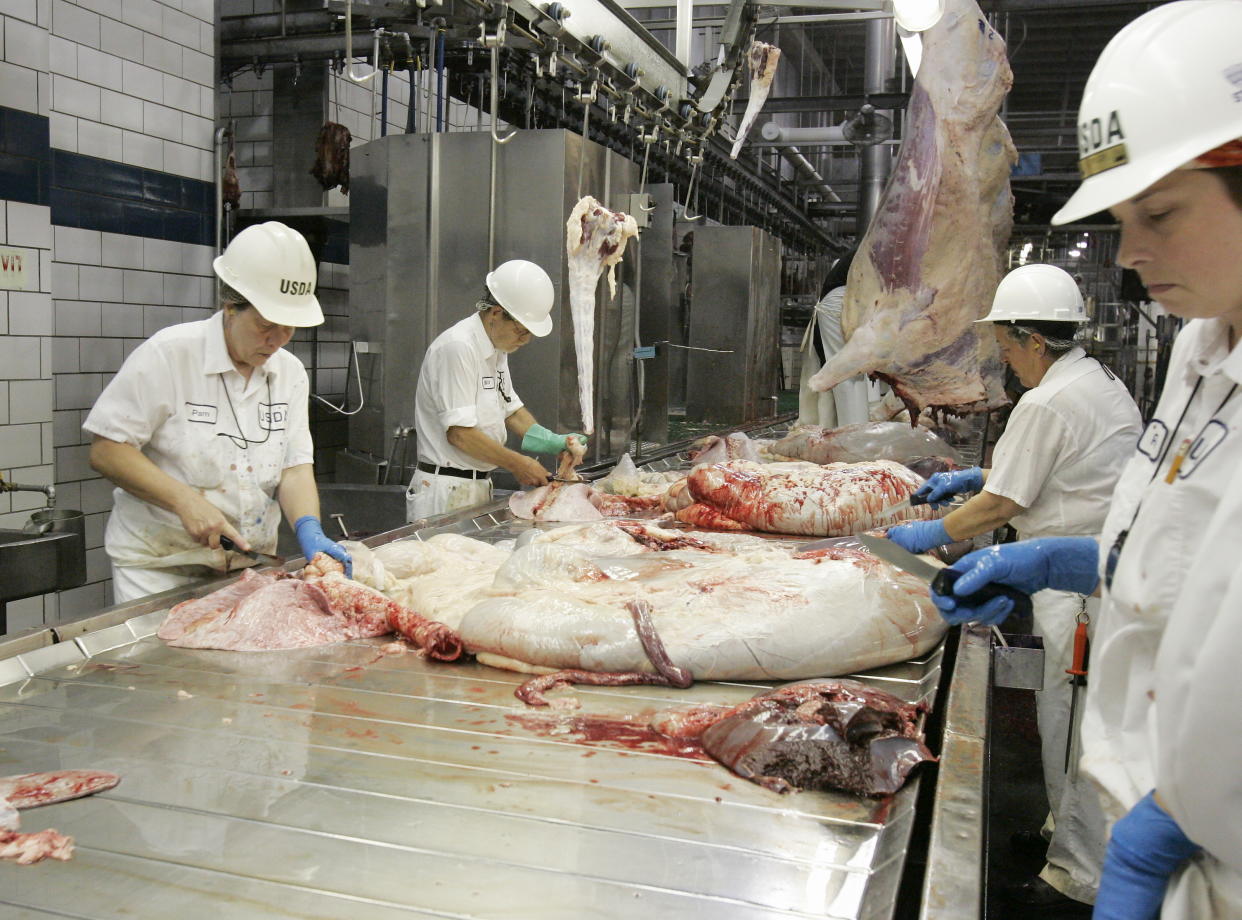As small businesses slowly reopen amid coronavirus, it's going to be "messy": CFIB

The Cargill High River, Alta. meat facility reopened Monday, but industry and union leaders are urging workplaces that plan to reopen to start small and implement “nuanced safety procedures.”
Michael Hughes, the communications coordinator for the United Food and Commercial Workers Canada Union Local 401, said Cargill’s workers in High River are “terrified” to go back to work.
He added that, according to a recent survey, 80 per cent of Cargill workers do not want the meat facility to reopen, and 85 per cent say they are afraid.
The facility had more than 900, out of 2,000, employees test positive for COVID-19.
“We need to overcome that fear and the only way we can do that is if we have assurances that the plant is safe,” he said. “Taking an approach to workplace health and safety that is more than ticking boxes. If masks are provided we need to actually be able to see what kind of masks are provided and who gets them and how often they get changed.”
Hughes said that Cargill’s facility in High River is not “designed around social distancing” and that workers are typically in close proximity with others.
Cargill said in an emailed statement that the plant opened with two shifts on May 4 and that employees who are healthy and able to work are asked to report back.
“In keeping with our extensive focus on safety, we want to emphasize that employees should be healthy and not had contact with anyone with the COVID-19 virus for 14 days,” Cargill said. “According to health officials, the majority of our employees remain healthy or have recovered.”
Cargill said in a memo that it was going to provide masks, implement employee screening, and that they plan to offer “changes to locker room and lunch room workflows.” There also plans to add barriers in bathrooms and continued extensive cleaning of the facility.
Prime Minister Justin Trudeau said during his daily press briefing that the federal government is working closely with provinces on ensuring that there are adequate safeguards put in place in the agriculture industry.
“This is a provincial area of responsibility...but we will be there to support the provinces in its work to ensure both the continued flow of supply chains for our food, but also the protection of workers who could be vulnerable,” he said.
Alberta, Nova Scotia, Newfoundland and Labrador, Manitoba, Saskatchewan, New Brunswick, Ontario, Quebec have plans put in place on re-opening specific businesses.
Small businesses should re-open, but it will be messy
Dan Kelly, president of the Canadian Federation for Independent Businesses, said it wouldn’t be a bad idea for certain small businesses to start reopening, but added that they need to take incremental steps.
“We’ve learned a lot from the last six weeks of the shutdown from the grocery sector. Now stores are limiting the number of people that can come in at any given time to prevent lineups. They’re also putting in cleaning procedures...and many are adopting barriers between the employee and the customer,” he said.
“Those are the kinds of common-sense modifications that we believe more and more small companies can use in order to get them open.”
He said the reopening of these small businesses will help “slow the curve.” Instead of customers only having the option of shopping at big-box stores to buy essentials, it could be helpful to have smaller stores open with modified practices to serve customers.
Kelly said that the process won’t be easy; it’s going to be “messy.”
“If we wait for every single element to be firmly in place, we’ll be waiting forever,” he said.
“We're going to have to allow some trial and error here. I know the consequences are significant and that’s why we have to all take the advice of medical officers of health seriously.”
Kelly added that many provinces are also starting to talk about adjusting safety and health regulations for businesses post-pandemic.
“Most provinces have begun, including Ontario to lay out the roadmap for different industry sectors of what they have to do in order to protect employees and customer safety,” he said, adding that it likely won’t be a “one size fits all model.”
However, while the CFIB is pushing for certain small businesses to open, Trudeau did indicate that the country is still not ready to fully have workers go back to their jobs yet.
“We are not there yet. We’re very much still trying to make sure that people are getting the support they need. Even as the economy is starting to gradually reopen, our focus is on keeping people safe and ensuring that they have the ability to stay home and pay for groceries and pay their rents and support each other,” he said.
Download the Yahoo Finance app, available for Apple and Android and sign up for the Yahoo Finance Canada Weekly Brief.

